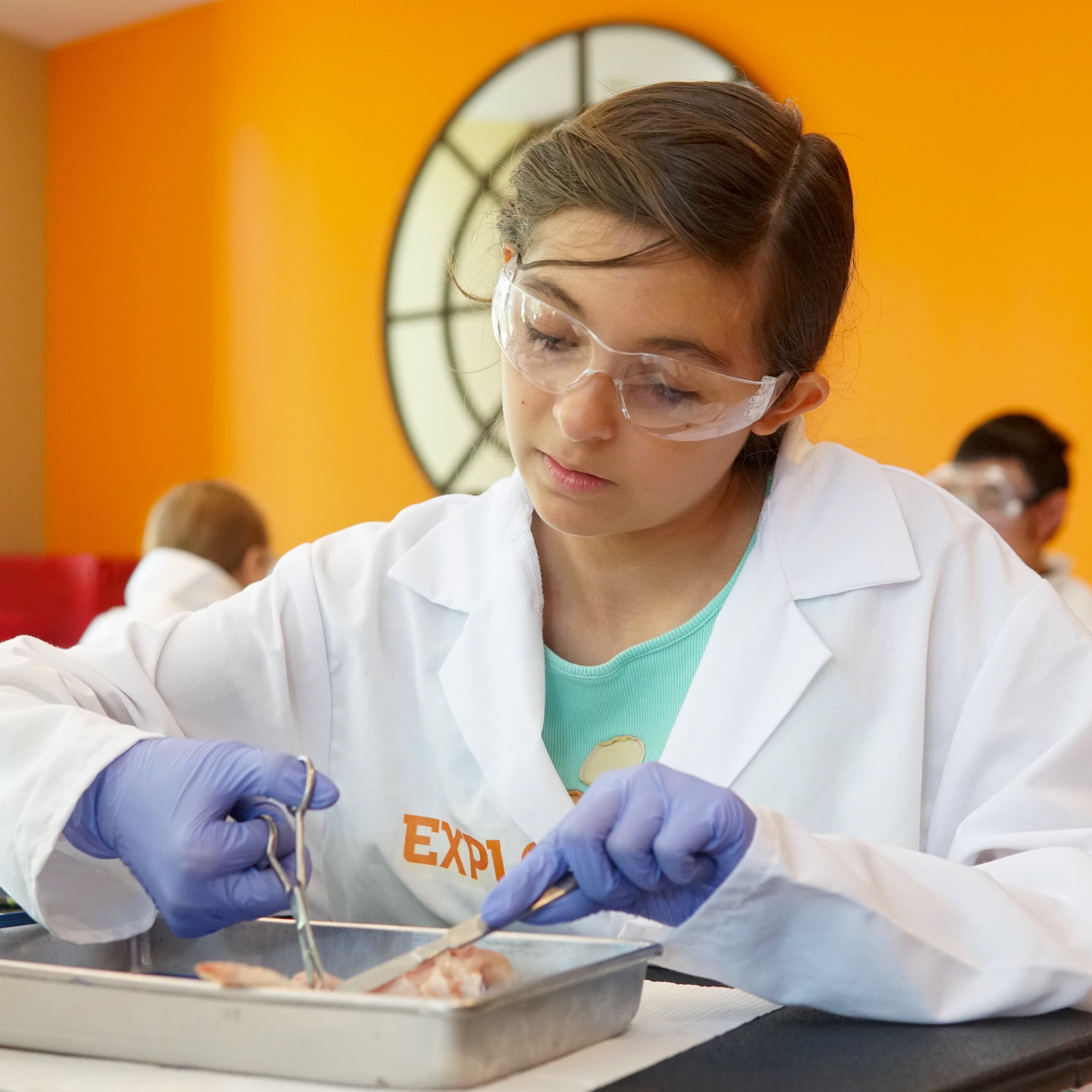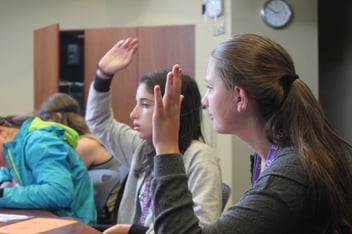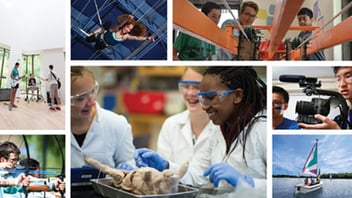How Summer Camp Can Help With Summer Brain Drain and Boredom

Has anyone ever told you your brain is a muscle, and if you don’t keep it in shape, it will atrophy? Anatomically, this is absolutely false; the brain is not a muscle, but a complex arrangement of nerve cells. But there is an underlying kernel of truth to the sentiment. Brains — especially growing brains — benefit from exercise.
“Brain drain” is a colloquial term for a phenomenon with which teachers and parents are all too familiar. Over the summer, separated from classrooms and homework assignments, children tend to forget a good portion of what they learned at the end of the school year.
If you’ve witnessed your child struggling during their first few weeks back at school in September, you probably don’t need any convincing that brain drain is real. But the scientific evidence does back up your observations.
Experts say the average student will lose a month of school-year learning over summer vacation. And the older the student, the greater the loss.
During the summer after third grade, the average student loses nearly 20 percent of their school-year gains in reading and 27 percent in math, one researcher calculated recently. By the summer after seventh grade, the average student loses 36 percent of their gains in reading and 50 percent of their gains in math.
Teenagers, then, are at the highest risk for brain drain.
A Cure for Brain Drain
It would seem the best solution to brain drain would be to keep students in their classrooms over the summer. But it’s not quite as simple as that.
Students deserve a break from the pressures of grades, the expectations of parents and teachers, and the drudgery of rigid curriculums. Plus, relaxation is as good for building brain power as it is for building muscles.
The answer to brain drain is to give children opportunities to engage their minds in novel, creative, and fun ways. Summer learning should revolve around exploration and discovery, not passive lectures and rote memorization.
In fact, brain drain may be on the rise because today’s children have less latitude to explore the world independently over the summer than previous generations. A parenting columnist for the Chicago Tribune writes about letting children “problem-solve their way out of boredom.”
How a High-Quality Academic Summer Program Fights Brain Drain
A great educational summer program is the opposite of the traditional classroom experience.
Instead of sitting through long, boring lectures, students engage each other and their instructors in stimulating discussions. Instead of memorizing formulas that exist only in theory, students use their knowledge to overcome real-world challenges. Instead of staying in one place, students range across a campus or a city, making discoveries about the world and themselves as they explore.
This experiential approach to teaching is known as active learning. Studies show that students retain information 1.5 times longer with active learning than with passive lecture-based classes.
Most importantly, active learning is fun. It doesn’t feel like work to children. It feels like hanging out with friends, trying new things, and seeing what happens. It feels like what summer’s supposed to be about.
Here are a few examples of active learning challenges at EXPLO that give young minds a summer workout:
- Constructing a hovercraft so big you can ride on it (and learning about the physics of motion and friction in the process).
- Cracking a cryptographic code to recover a stolen treasure.
- Designing, building, and test-launching aircraft to travel farther, higher, and faster.
- Solving a crime using real-life investigative techniques, including fingerprint analysis, suspect interrogation, and evidence collection.
- Compiling a library of samples and beats, remixing and reassembling them with professional music software to create brand new tracks.
- Dissecting a sheep’s brain to learn how neural pathways work.
- IKEA
 Brain drain isn’t inevitable. Students of all ages can not only hold onto information over the summer but add to their knowledge. All it takes is a little academic excitement to lift them out of their doldrums.
Brain drain isn’t inevitable. Students of all ages can not only hold onto information over the summer but add to their knowledge. All it takes is a little academic excitement to lift them out of their doldrums.
Learn how the best summer camps fire up a passion for learning in our free guide for parents, “The Secrets to a Transformational Summer Camp Experience for Your Teen.”



